FEATURED FACULTY – INTERVIEW: PART I
Rishikesh KB of the Research Office caught up with Prof Sidhartha S. Padhi and Prof Arqum Mateen who spoke about their research insights and experiences.
- First of all let me congratulate both of you for your top rated publications this year. Prof Padhi, heartiest congratulations to you for publishing in an A* category journal viz. Decision Sciences and an A category journal viz. International Journal of Production Research. Prof Mateen, heartiest congratulations to you for publishing in an A* category journal viz. Decision Support Systems and two A category journals viz. International Journal of Production Research and Marketing Intelligence and Planning.
Sidhartha S. Padhi: Let me first thank for this opportunity and initiative. Being an operations guy, I believe in the concept of K.I.S.S – Keep It Simple and Straight. So you could expect my answers to be precise.
Arqum Mateen: Thanks a lot for your kind words.
- I would like to begin by asking you what experiences have you had during your academic period that created an interest towards research? Could you throw some light on your personal journey towards research in operations management?
Sidhartha S. Padhi: It is said that growth in science is not due to followers, but distracters. So in research we need to challenge and question conventional assumptions and theories. Because in OM, all models are wrong as they are time and situation specific, and therefore there is a huge potential for research. But for me primarily, it has been my association with research guide that sprouted a deep rooted interest in research. The influence and mentoring of my supervisor has been very crucial in delving deep and exploring topics relevant and researchable.
Arqum Mateen: I come from a family of teachers, and academic environment was there since early childhood. So I always admired and was passionate towards this profession of teaching. My interest in management in general and operations management in particular first germinated when I took courses on Industrial Engineering, Quality Management, Experimental Methods, Optimization, Managerial Economics, Psychology etc. during B.Tech. Most of the teachers were extremely well-versed in their respective subjects and some also provided multi-disciplinary integrated inputs which only served to broaden the scope of our learning. Later, the multi-disciplinary pattern of learning during my PGDM and FPM reinforced my learning and provided novel and intellectually stimulating perspectives. My experiences there made me explore more and more areas of research interest. And thus, my search began.
- Describe your typical research process. How do you find / discover a research a topic?
Sidhartha S. Padhi: If I know the outcome of research, there is no point doing research. So there are two approaches I follow in identifying research problems. One is through identifying a real life problem leading to theory development. For example inventory control, auction designs…etc. Two, theoretical problems developed in to cases to establish a grounded theory. It’s a backward integration of a theory. But in both, the major issue is to find a genuine problem. So in short most of my research ideas are churned through broad reading, and rigorous self exploration. Ideas generated through research magazines and journals, textbook references, listening to video lectures of MIT Sloan and Ivy league universities, and exploring the huge database resources like proquest, science direct, Springer, Emerald…etc has also been of great use. Another easier way I found to identify problems is to be a part of review committees. I stand in the review boards of close to 35 Journals across the globe, and benefit from each paper I review. I could learn, relearn or unlearn something anew.

Prof. Arqum Mateen interviewed by Rishikesh KB (Sr. Research & Publications Associate)
Arqum Mateen: There are primarily two paths that I follow. One is, of course, based on extensions of published work. We try to keep ourselves up to date by reading latest issues and forthcoming articles in various journals. Sometimes, it so happens that that I get an idea about some extension or modification to those papers and then take it from there. The other emanates from my general reading of popular and business publications. Thus, sometimes when I read an article, I get some ideas to carry out some research. Of course, in this latter instance, it often happens that after getting an idea when I start searching for academic publications related to that topic, I realize that quite a bit of work has already been done. Nevertheless, it serves as a useful opportunity to learn something new, and one never knows when that might come in handy. There are two other ways which have been useful for me. Discussions and interactions with a network of a very dynamic peer group and erudite faculty which evolved over a period of years still continue to be a major source of inspiration. In fact the idea of my first research paper evolved over a tea discussion with a batch mate. Secondly, social media resources are also becoming more and more useful to me in staying abreast of developments in the field. Thus, many people I follow on Twitter have been quite useful in providing frequent and timely updates in various academic fields. Similarly, blogs by eminent faculty in several B-schools like Harvard, Kellogg, Insead etc. are also quite useful. All these also help in my teaching
- How would you explain the broader significance of your research to an educated layperson who doesn’t have the domain specific knowledge or the subject expertise?
Sidhartha S. Padhi: We at IIM’s make our FPM students sit in PGP classes for the first year. And this is to gain basic management awareness, and to learn the interconnectedness of various disciplines. Similarly to appreciate its contribution, OM is one discipline which needs understanding of several other disciplines. So I personally feel that to know about OM, one also needs to know other disciplines. One needs to know the theory behind it, so as to appreciate its practicality. Or else OM is just another Greek or Roman.
Arqum Mateen: I believe research in OM is most commonly linked to what a common man experiences. For example in inventory or logistics management, often the concern is to make the process effective and efficient. So right from the entry level to end processing or final delivery, economizing the use of resources becomes the focus. This brings in direct effects on the functioning of an organization both at micro and macro levels, and at times almost instantaneously. Thus, benefits of OM research and improvements are often quite direct and immediate.
- Tell us in brief about your current research work.
Sidhartha S. Padhi: I presently work on the factors that lead to the long-term survival of elite firms, which is theoretically known as the Matthew Effect or the Accumulated Advantage – For to all those who have, more will be given, and they will have an abundance; for those who have nothing, even what they have will be taken away. In other words, it’s about how the rich get richer and the poor get poorer.
Arqum Mateen: We are currently working on a couple of projects. For example, I am trying to extend my FPM work which deals with supply chain coordination through a particular mechanism called vendor managed inventory. In this we are looking at optimization of system level costs in multi party supply chains. In another ongoing project we are trying to look in to various ways through which we can enhance the effectiveness of sponsored search ads that you see when you search something on search engines like Google. We are also trying to explore how organizations can learn from firms in different industries, especially in network settings.
- Who are the researchers in Operations Management that have inspired you? And how?
Sidhartha S. Padhi: My inspirations were Prof. (Dr.) Pratap K. J. Mohaptra at IIT Kharagpur, and later Pof. (Dr.) Stephan M. Wagner, Professor at Swiss Federal Institute of Technology Zurich (ETH) from where I did my post doctoral. I have seen him work from 07:00am to late 02:00am, and start the day after all afresh. What else do one need as an inspiration? Besides these the parties, New Year celebrations and the get togethers have ever been the bonding best to extend our rapport. We call it the brown bag sessions or seminars. The purpose is to utilize normal breaks, such as the lunch break, to provide information to attendees in a voluntary and informal setting, which is often followed by a discussion of the topic. Besides these the peer group that I had developed through networking and the selfless knowledge sharing amongst us has also enhanced the curiosity and interest in this subject.
Arqum Mateen: In addition to stalwarts in different areas of management, specifically in the area of Operations Management, I would say that I learned a great deal about teaching, research and publishing from all the Faculty members at IIM Calcutta. However, given the nature of the FPM curriculum, I was fortunate to learn from, and continue to get inspired from, teachers in a wide variety of management disciplines both here at IIM Kozhikode as well as IIM Calcutta. The list would obviously be too long, and I won’t be able to do justice to all of them.
Interviewer: That is very well said. Thank you for a wonderful session.
(Interview concludes with Part II)
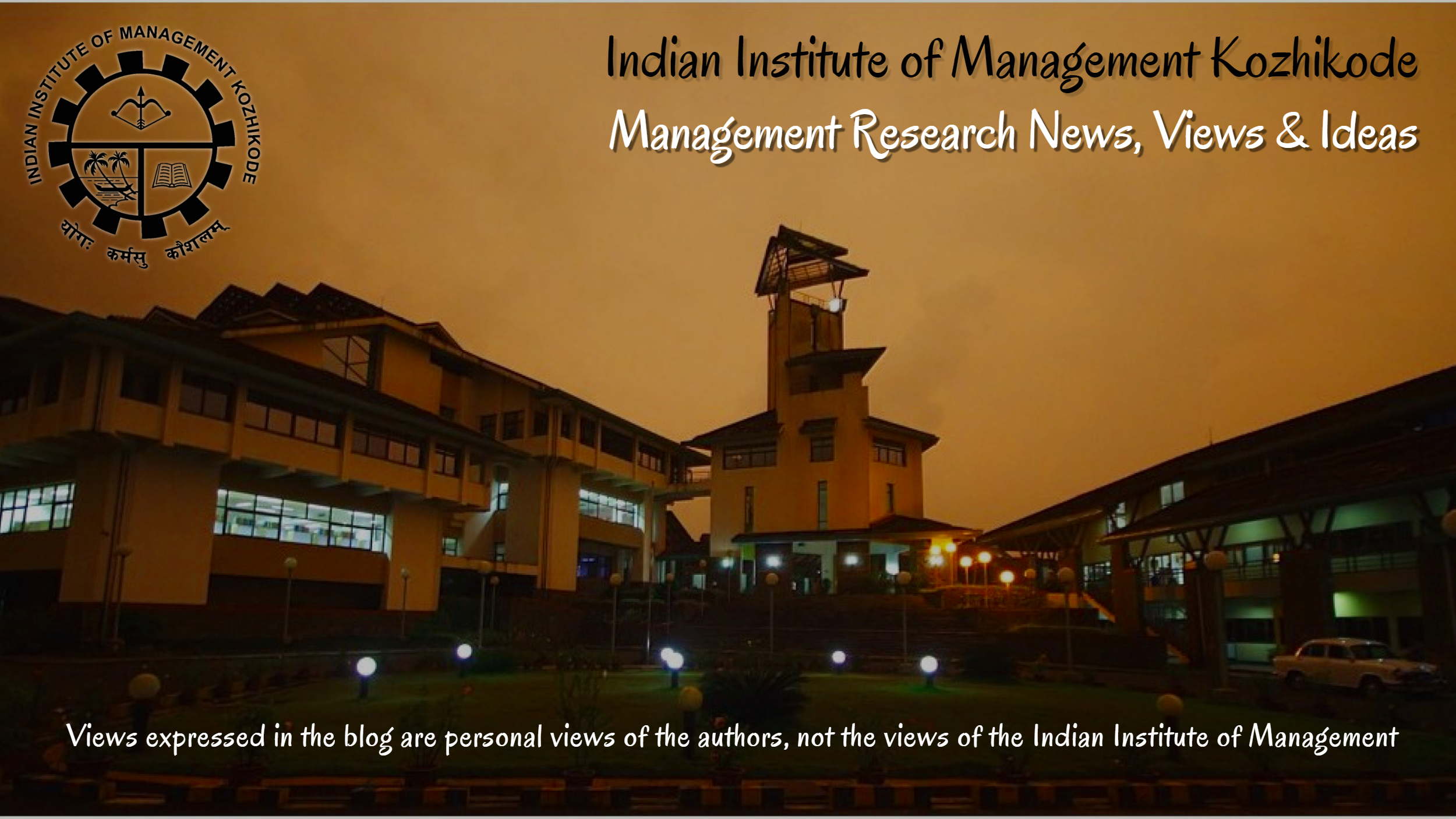



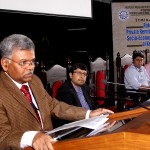
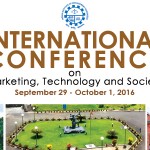
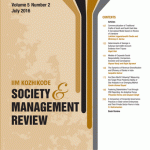
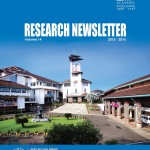
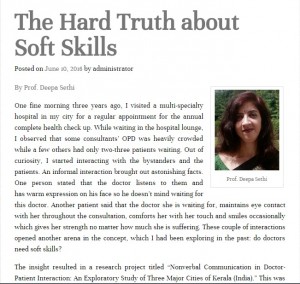
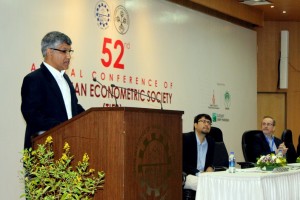

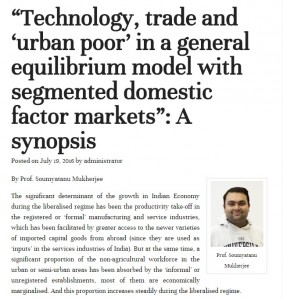
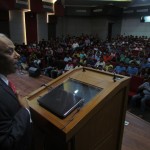





 Users Today : 255
Users Today : 255 Users Yesterday : 408
Users Yesterday : 408 This Month : 5426
This Month : 5426 This Year : 5426
This Year : 5426 Total Users : 563670
Total Users : 563670 Who's Online : 11
Who's Online : 11